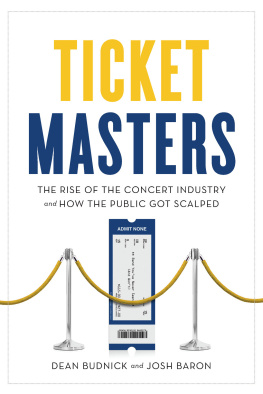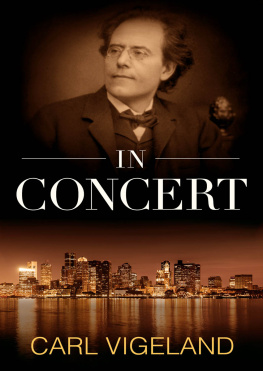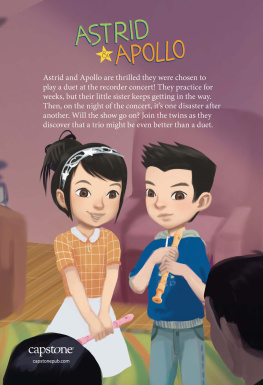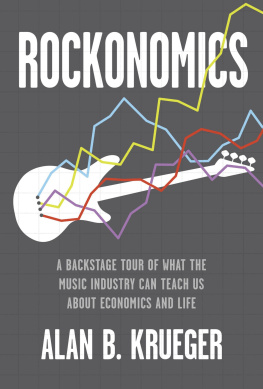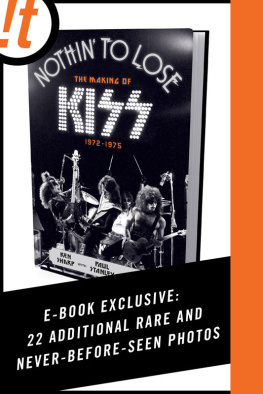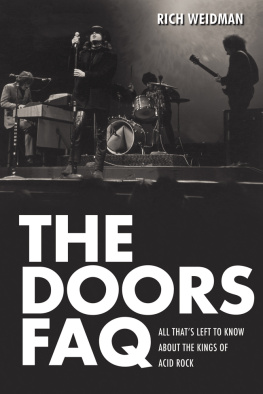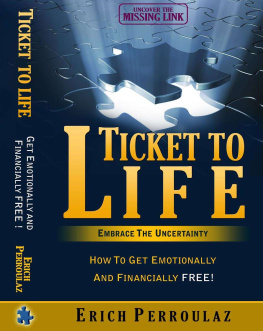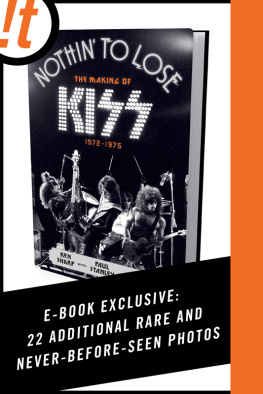All rights reserved. No part of this publication may be reproduced, stored in a retrieval system, or transmitted in any form by any process electronic, mechanical, photocopying, recording, or otherwise without the prior written permission of the copyright owners and ECW Press. The scanning, uploading, and distribution of this book via the Internet or via any other means without the permission of the publisher is illegal and punishable by law. Please purchase only authorized electronic editions, and do not participate in or encourage electronic piracy of copyrighted materials. Your support of the authors rights is appreciated.
public got scalped / Dean Budnick, Josh Baron.
Includes bibliographical references.
1. Ticket brokerage. 2. Performing artsTicket subscription.
3. Performing artsTicket prices. 4. Ticket scalping.
I. Baron, Josh II. Title.
Dean: To my gold circle: Leanne Barrett, Caroline Budnick, Quinn Budnick, Alfred Budnick and Janet Budnick
Josh : To Rachel: Thank you for enduring my frequent absences during our first year of marriage and for being my biggest champion through your ceaseless encouragement.
PROLOGUE
The Summer of Their Discontent
THE CHAIRMAN HAD SPOKEN .
On the evening of August 3, 2010, Irving Azoff, whose role as chief executive officer of Ticketmaster had recently expanded following an industry altering merger that furnished the new title of Live Nation executive chairman, bypassed the companys publicity firm to offer his first direct message to ticket buyers via the social networking service Twitter.
Azoffs comments fell in the midst of what looked to be the most miserable U.S. summer concert season on record. Weak ticket sales had forced the cancellation of numerous high-profile performances, starting with a series of stadium shows by Azoffs longtime management client the Eagles on a bill with country superstars the Dixie Chicks and Keith Urban. In the weeks that followed a number of recession-proof acts did the same, as the Jonas Brothers, Rihanna and Lilith Fair all canceled multiple dates. Limp Bizkit scrapped its U.S. amphitheater tour and Christina Aguilera soon followed suit, citing prior commitments. Even the annual American Idols Live! outing, which had blown out tickets in prior years, was forced to scale back its itinerary, dropping seven shows and rescheduling many others.
Entertainment reporters and Wall Street pundits alike took particular interest in the flagging amphitheater sales figures since most of these sheds were under the control of Live Nation. The summer of 2010 represented the first official go-round for the blended company after the government had approved the union of the worlds largest live event promoter, Live Nation, with the worlds largest ticketing agency, Ticketmaster (which had recently acquired the worlds largest artist management firm, Azoffs Front Line).
The Department of Justices ruling had been preceded by nearly eleven months of inquiry and two congressional hearings. In February 2009, shortly after the corporations announced their intent to unite, Azoff had been summoned to Capitol Hill in a moment that echoed former Ticketmaster CEO Fred Rosens 1994 appearance before Congress in the wake of a public dustup with Pearl Jam. However, unlike the earlier inquiry, which in many respects resulted from the fight over a nickel, by 2009 billions of nickels were in play. As a result, both the House Subcommittee on Antitrust and the House Subcommittee on Courts and Competition Policy elected to weigh in on the matter.
Ultimately though, it fell to the Obama White House and his Department of Justice to determine whether to block the merger as an illegal restraint of trade. The federal government eventually granted its permission over the strident objections of opponents, who charged that the mega-company would raise prices and inhibit the development of new musical artists.
By August 2010 a growing segment of the financial community began offering its own criticism, as initial optimism regarding the prospects of Live Nation Entertainment was falling in tandem with the rate of ticket sales.
Over the course of the summer the company had taken a series of increasingly desperate measures to draw audiences into its amphitheaters. Package deals that offered coupons for a free soda and a hot dog gave way to mid-Junes No Services Fees promotion, which proclaimed, Your summer concert tickets at Live Nation amphitheaters now have No Service Fees (even as an asterisk qualified, Parking, shipping and other non service fee costs may apply).
In late July the company instituted a $10 ticket program, which dropped prices even lower, scrambling to achieve a short-term financial benefit that led some prior ticket holders to grouse about their decision to purchase seats during initial sales at much greater expense.
When the expected windfall wasnt realized, Live Nation then outfitted employees with sandwich boards and paraded them through its venues, tickets in hand, hawking the cheap seats for future shows. Yet despite all of this, sales figures remained low as audiences were uncomfortable with the overall price structure of the concert experience.
In the face of these events, at 10:53 p.m. on August 3, Executive Chairman Azoff shared his sentiments with the public via the immediacy of Twitter.
So if you want ticket prices to go down stop stealing music.
Seemingly absolving his company of responsibility, Azoff placed the burden squarely on the overburdened shoulders of consumers. This wasnt the first time he had conveyed such a message. A few weeks earlier, at Fortune magazines Brainstorm Tech conference in Aspen, he had shared similar thoughts about his customer base with the magazines managing editor: If they could figure out a way to steal the tickets they would, just like they steal movies and music. But so far they havent figured out how to do that.
The declining sales of recorded music held deep significance for Azoff, who in addition to running Front Line Management had previously headed both MCA and Giant Records. Still, few concertgoers appreciated his sentiment, flustered and frustrated as they were by parking costs, concession prices, $5 add-ons for the luxury of a short, ordered line into the venue, as well as the very price of tickets themselves, with their vexing array of fees. Consumers pointed, for instance, to Lady Gagas Monster Ball tour, in which a single $20 lawn ticket could cost nearly $50 after a facility charge ($12), convenience charge ($10.05), order processing fee ($5.20) and TicketFast Delivery, i.e., print-at-home ticketing ($2.50).
The sheer magnitude of it all had led one would-be concertgoer to profess in an online forum, with equal measures of humor and irritation, Screw Live Nation, Im grabbing these tix after the show.

